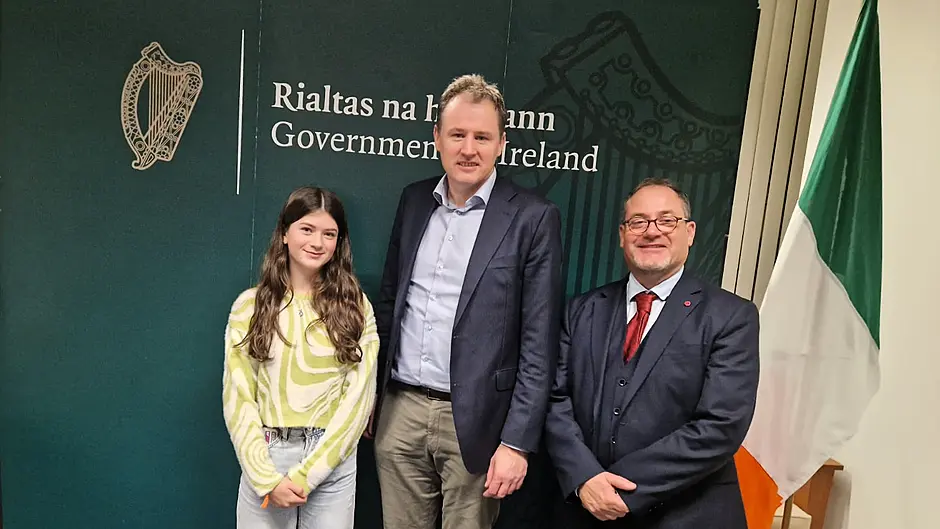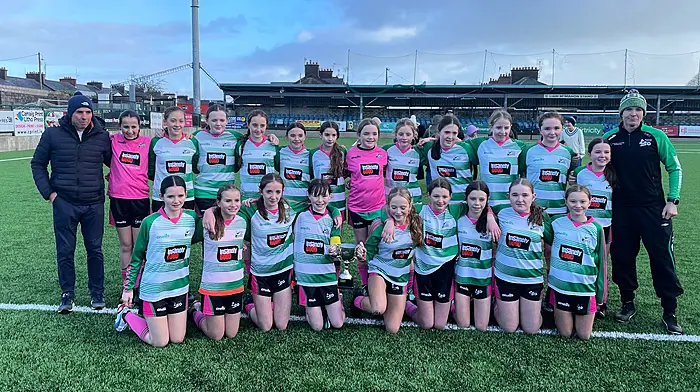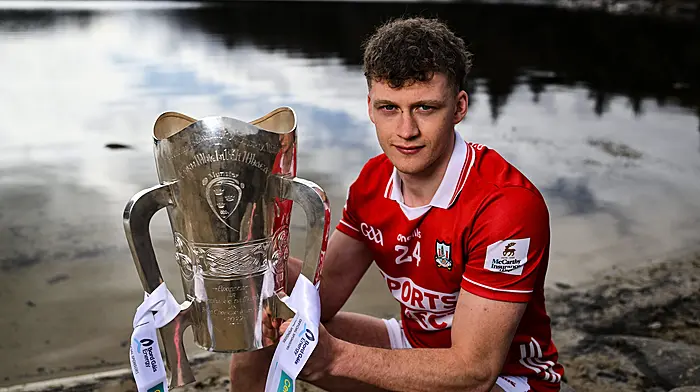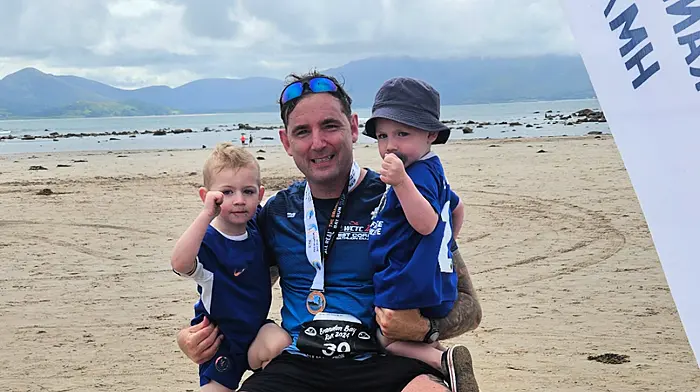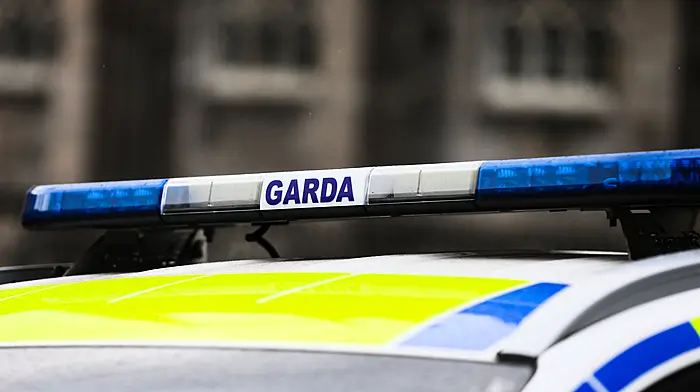What was celebrated as a victory by Minister Charlie McConalogue in this month’s EU fisheries deal can’t hide further huge losses suffered by the fishing sector in the South West, argues Irish South & West Fish Producers Organisation chief executive PATRICK MURPHY
AS Christmas approaches, I wish to tell you of a father- and-daughter business and educational trip to Brussels my youngest child Clara took with me.
We travelled from Castletownbere at midnight to catch the morning fight from Dublin to Brussels to follow the EU Fisheries Council meetings. Europe’s ministers for fisheries met for three days to agree on total allowable catches (TACs) and quotas for the coming year. My annual foreboding was eased a little by my travelling companion’s excitement.
Each year, I submit on behalf of our fishermen credible, fair, and sustainable requests to the Minister for Agriculture, Food, and the Marine and his Department officials. I ask them to avoid the savage cuts across our key whitefish stocks like hake, haddock, plaice and sole in the Celtic Sea.
Now his year we must add pollack to the list for while 300 tonnes were allowed to be caught and landed in 2023, this quota figure will be slashed to a little over 50 tonnes for 2024. This is nothing less than a disaster for our smaller inshore boats.
The scientific assessment of the hake stock under maximum sustainable yield led to an increase in the TAC to more than 142,000 tonnes in 2019 but that annual TAC has been reduced year after year to a position where the TAC has been almost halved over the past five years, down to 72,000 tonnes despite this stock actually being under fished in each of the past seven years.
The future of our Industry is bleak when supposed scientific advice is not in conformity with the reality of what our fishermen observe on our fishing grounds.
The abundance of fish witnessed by our fishermen on Irish fishing grounds every day of the year is reflected in the thousands of lorries laden with fish landed by ourselves and by our fellow fishermen from France and Spain, being exported from Castletownbere annually, proving that what we see with the sight of our eyes is no lie.
Many stocks in Ireland’s exclusive economic zone (EEZ) could allow for far higher Total Allowable Catches with sustainable quotas for Irish fishermen – many of whom are already being forced to leave the Industry following Brexit.
It’s not yet too late for those families who remain in our industry. The Common Fisheries Policy (CFP) of today is built on the CFP of 1983 and it continues to favour visiting fleets who don’t actually catch their full quotas.
The percentage share-out of various stocks in Irish waters agreed in the CFP of January 1983 continues to operate, without change, over the past 40 years and it overwhelmingly favours fleets that visit our waters from the farthest corners of Europe.
We ask for no more that equal rights and equal opportunities for Irish fishermen in Irish waters based on the realities of today, not 40 years ago.
My daughter Clara was present at the meeting where Minister Charlie McConalogue announced that his battle for a return to Ireland of a mackerel quota of 12,000 tonnes. This fish was granted to Denmark by the EU 40 years ago from the mackerel stock that spawns and breeds in our waters. Ireland lost 18,000 tonnes to the UK as part of the Brexit deal in Christmas 2019.
We welcome the return of 2,500 tonnes this year, reducing to 1,500 tonnes by 2025, but this will not cover the Brexit-enforced reduction of 9%, a massive loss of 5,000 tons.
So despite the minister’s gain, we are down over 3,000 tonnes again in 2024. Some praise must go to Mr McConalogue and we finally saw some burden sharing for Ireland, this time from Denmark. We will need more burden sharing from other states in the future.
One of my roles as an industry representatives is developing relationships with our European colleagues.
Clara attended our European Association of Producers Organisation Executive committee meeting and witnessed the cooperation to assist each other to keep our fishermen operating safely and legally next year.
Some 40 family-run whitefish vessels from a fleet of 180 vessels have exited the industry after Ireland’s third decommissioning scheme since 2005, and all due to lack of quota. The lack of quota as been foisted upon us by successive ministers at EU Council Meetings and by our representatives in the European Parliament who have agreed, in one way or another, to awful deals affecting our coastal towns and villages.
As a fisherman who fished all methods, both Inshore and offshore for decades. I understand my industry. I will continue to urge Minister McConalogue not to continue with current pelagic policies.
Instead he must review all policies and the continuing Brexit effects on what remains of our catching sector. Our fishing policy should reflect catch opportunities for the various sections of our fleet to ensure a fair distribution of this national asset that will support as many families as possible around our coast. We need to save fishing families from being forced out of their Industry as they are not given a fair share of the fish.
They need to make a decent living. We have only one pelagic factory left outside of Killybegs and that is in Baltimore.
If Minister McConalogue will not follow European Parliament and Council legislation on balancing the opportunities across the entire fleet, I fear this could follow the same fate as hundreds of factories originally operating around our coastline.
We need a more equitable sharing arrangement from Minister McConalogue as he allocates the mackerel returning to us from Denmark so that the benefit is spread across all sectors of our fleet, all the way down to the fisherman in the smallest punt. The benefit must be equitably spread between all our fisherman identified by the Task Force as being those in the greatest need.
So many local trawlers in Baltimore and Schull have disappeared after three decommissioning schemes. We had a fleet of 400 boats cut by 260 boats. The 140 remaining boasts are fearful for their survival.
Our coastal and island fishing communities in Cork, Kerry, Limerick Clare, Waterford, Wexford, and Wicklow have more than paid the price of Europe agreeing a deal for a tariff-free trade agreement with the UK. My daughter was in Brussels for four days.
After four days she understands that it is our fish, taken from us, with our fleet destined to follow, if our rights and opportunities are not guaranteed to Irish fishermen, particularly those fishing in our Celtic Sea and Irish Sea. The fish we are asking Europe for are only those found in our waters.
But once again, we are informed by our officials this is too much to ask for in Brussels at this year’s December Council Meeting.
Another year looms with even less crumbs from the table.
We live in hope and we will continue to fight for what is rightfully the Irish people’s resource.
• Patrick Murphy is the chief executive of the Irish South & West Fish Producers Organisation and is standing as a Euro candidate for Aontú in the Ireland South electoral area in the 2024 European elections.

